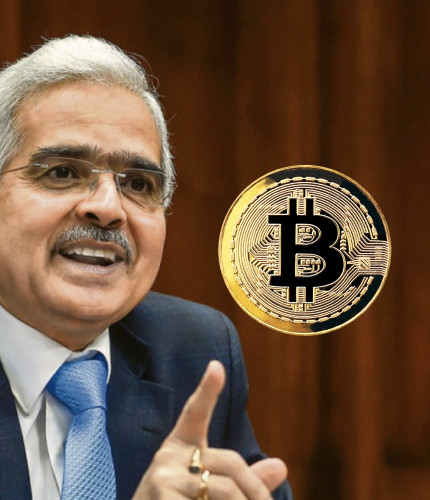Table of Contents
- Crypto poses risks – the IMF and the FSB say so
- No definition of crypto
- What can crypto do that CBDCs can’t?
- Private currency vs government-enforced currency
Governor Shaktikanta Das is continuing to voice his concerns about crypto. However, the governor has no views on the instability of fiat currencies.
Crypto poses risks – the IMF and the FSB say so
Governor Das has made his concerns over crypto very well known over time, and he has not changed his tune on his anti-crypto statements one iota. Each opportunity he gets in the public sphere he seizes with both hands in order to warn of what he perceives as the evils of crypto.
At the Business Standard BFSI Insight Summit 2023 in Mumbai, the governor was interviewed on his thoughts on crypto. He started by saying that “everybody understands and agrees” on the “serious risks” that crypto poses to the traditional financial system. He said:
“the International Monetary Fund (IMF)–Financial Stability Board (FSB) synthesis paper says very clearly that, based on country-specific requirements, especially for emerging markets and developing economies, countries may impose additional restrictions with regard to cryptocurrencies.”
Given that the two ‘financial authorities’ mentioned are very much pro a continuation of the fiat currency system, encouraging countries to impose extra restrictions on crypto would in their eyes lead to an ideal outcome if this indeed were to happen.
No definition of crypto
The governor went on to express his doubts over exactly how crypto is defined, stating:
“How will you regulate it (crypto)? Whom will you regulate and regulate what? Before you think of regulating it, let us first understand, what is this? What is this cryptocurrency? Is it a product, a financial product, an asset? If it is an asset, what is underlying that it is not a tangible thing? What is the underlying definition of cryptocurrency? Till now, I am yet to see a credible definition of what cryptocurrency is,”
With this particular statement Governor Das really displays how basic his knowledge of crypto is. It’s also rich that the governor makes the question as to what is underlying it, and how it isn’t tangible. The same might well be said of fiat currencies. Yes, they are tangible in the sense that cash is still being used, but probably not for too much longer, and as for underlying value, this is only what the State says it is, and this is being debased far too quickly to maintain any stability.
What can crypto do that CBDCs can’t?
When treating the purpose of cryptocurrencies, Das was dismissive, saying:
“What is it that cryptocurrencies will do for international transactions or domestic transactions, whatever you call it, in the digital mode, which the CBDC cannot do?,”
The answer to this is that with certain cryptocurrencies, and particularly with Bitcoin, there is no government or any other organisation behind it issuing any quantity of extra currency at whim, thereby debasing that currency and destroying the purchasing power of citizens.
CBDCs would be an all-powerful surveillance tool in the hands of every central bank, also allowing them to enforce rules that would have to be obeyed by every citizen or face penalties.
Private currency vs government-enforced currency
Governor Das is right in that cryptocurrencies are a form of private currency, which is something that was encouraged by the American forefathers when they set up their Constitution. It might be added that the wisdom of these men did not foresee the setting up of a ‘private’ central bank, such as the Federal Reserve, which has been able to print money for more than a century for the benefit of the banks, and to the detriment of the American people.
Governor Das is the head representative of the Indian central bank, and as such, can have nothing to do with any competitor to this system, no matter how innovative or how beneficial it might be to the common citizen.
Read the full article here

